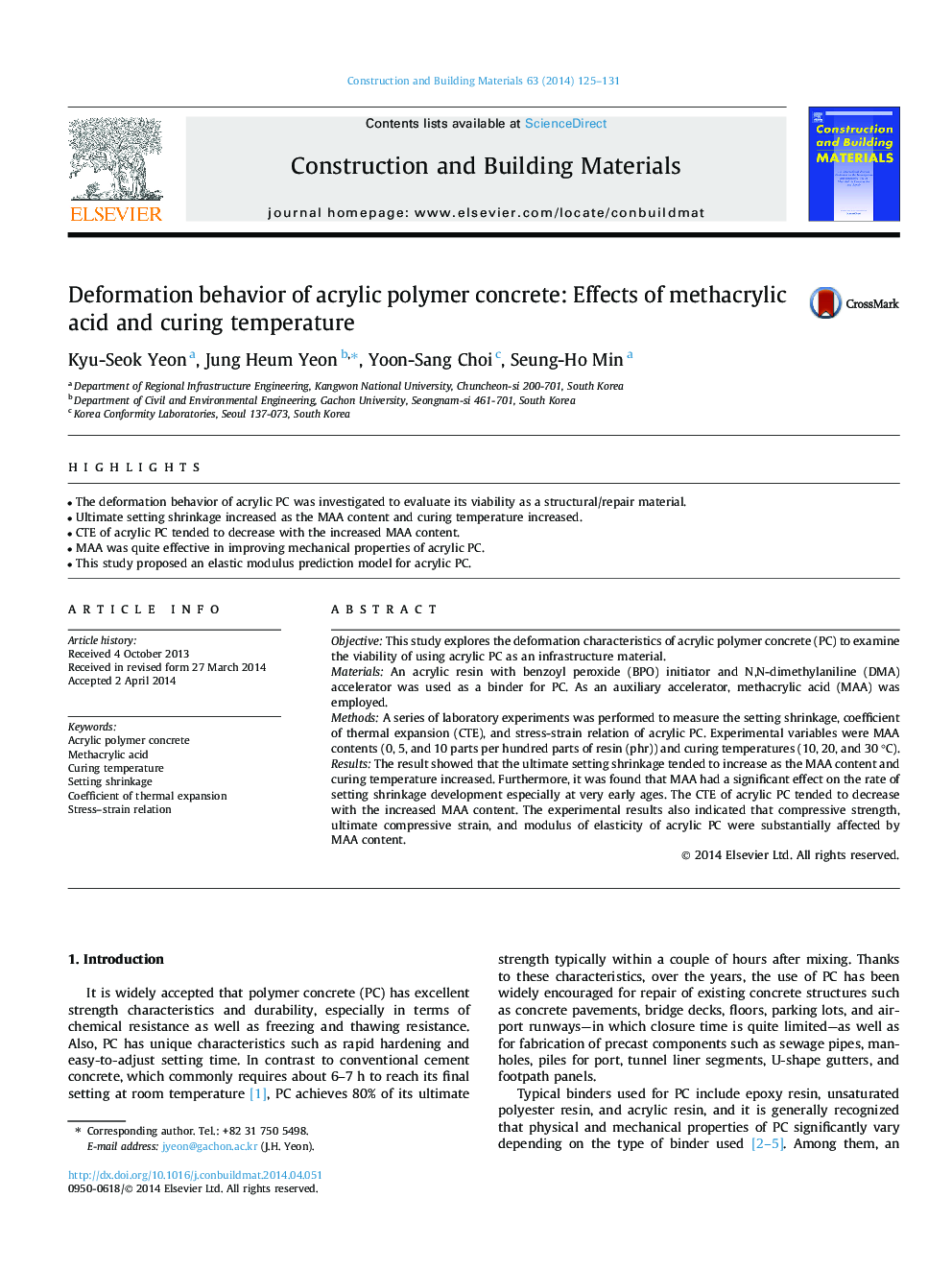| کد مقاله | کد نشریه | سال انتشار | مقاله انگلیسی | نسخه تمام متن |
|---|---|---|---|---|
| 257550 | 503593 | 2014 | 7 صفحه PDF | دانلود رایگان |
• The deformation behavior of acrylic PC was investigated to evaluate its viability as a structural/repair material.
• Ultimate setting shrinkage increased as the MAA content and curing temperature increased.
• CTE of acrylic PC tended to decrease with the increased MAA content.
• MAA was quite effective in improving mechanical properties of acrylic PC.
• This study proposed an elastic modulus prediction model for acrylic PC.
Objective: This study explores the deformation characteristics of acrylic polymer concrete (PC) to examine the viability of using acrylic PC as an infrastructure material.Materials: An acrylic resin with benzoyl peroxide (BPO) initiator and N,N-dimethylaniline (DMA) accelerator was used as a binder for PC. As an auxiliary accelerator, methacrylic acid (MAA) was employed.Methods: A series of laboratory experiments was performed to measure the setting shrinkage, coefficient of thermal expansion (CTE), and stress-strain relation of acrylic PC. Experimental variables were MAA contents (0, 5, and 10 parts per hundred parts of resin (phr)) and curing temperatures (10, 20, and 30 °C).Results: The result showed that the ultimate setting shrinkage tended to increase as the MAA content and curing temperature increased. Furthermore, it was found that MAA had a significant effect on the rate of setting shrinkage development especially at very early ages. The CTE of acrylic PC tended to decrease with the increased MAA content. The experimental results also indicated that compressive strength, ultimate compressive strain, and modulus of elasticity of acrylic PC were substantially affected by MAA content.
Journal: Construction and Building Materials - Volume 63, 30 July 2014, Pages 125–131
